
Our questions are answered by the dual Arc-winning trainer who handled a series of top-class horses during a long career – headed by a true great in Sea The Stars
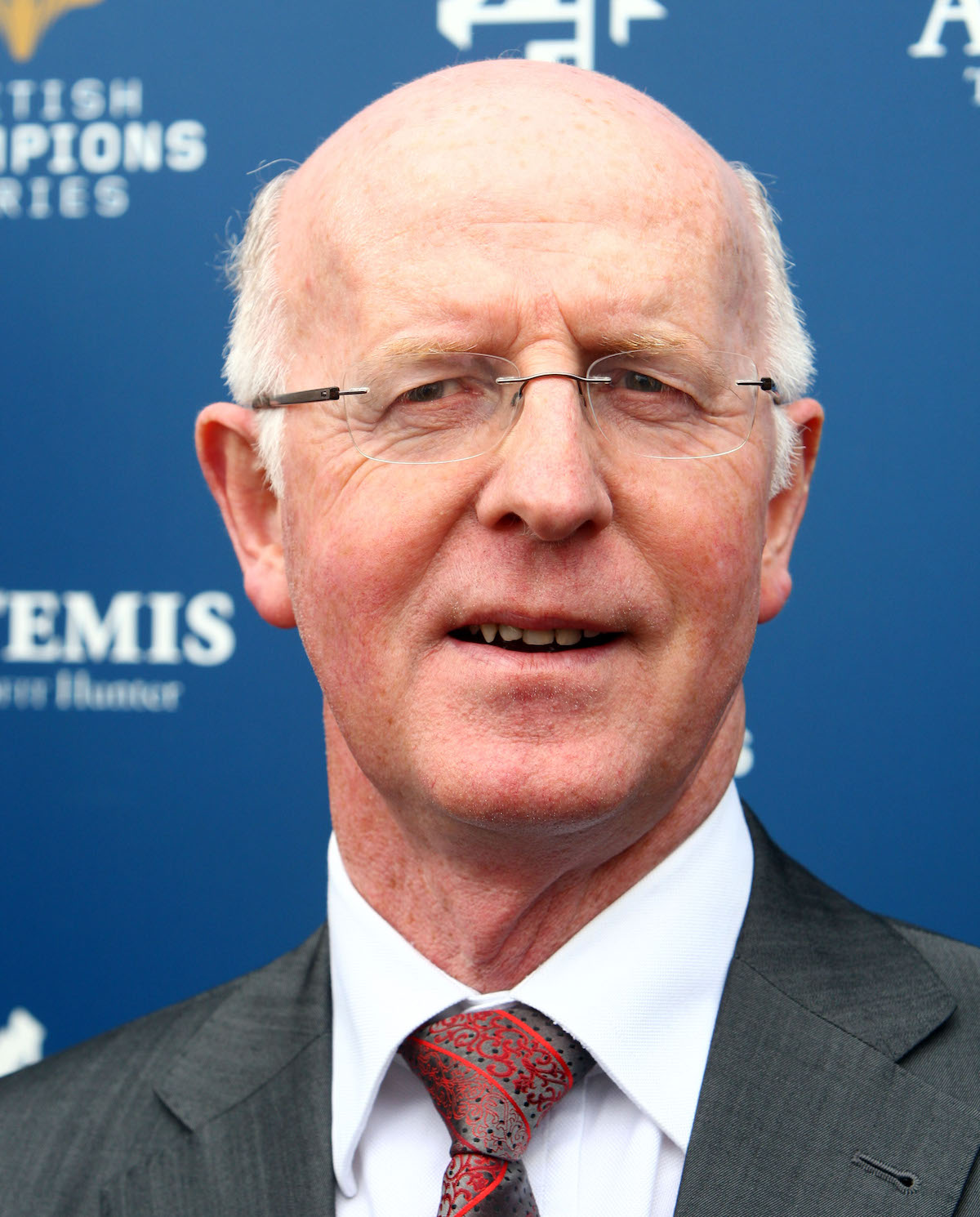 John Oxx, 74, is one of the modern greats of the training profession who handled many champions during his 41-year career headed by the peerless Sea The Stars – one of two Epsom Derby winners alongside Sinndar. Both horses also won the Prix de l’Arc de Triomphe.
John Oxx, 74, is one of the modern greats of the training profession who handled many champions during his 41-year career headed by the peerless Sea The Stars – one of two Epsom Derby winners alongside Sinndar. Both horses also won the Prix de l’Arc de Triomphe.
The son of a multiple Irish Classic-winning trainer John Oxx Sr., Oxx built his Currabeg yard on the Curragh into one of the most formidable in the sport at both domestic and international level.
A plethora of G1 winners included several for his long-time patron, the Aga Khan, among them Sinndar, who won the Derby, Irish Derby and Arc in 2000, and Alamshar, winner of the Irish Derby and King George three years later. Oxx also handled star filly Ridgewood Pearl, who captured the Irish 1,000 Guineas, Coronation Stakes, Prix du Moulin and Breeders’ Cup Mile in 1995.
However, top of the lot was the exceptional Sea The Stars, whose exploits in a spectacular three-year-old campaign bear comparison to the legendary Frankel. Never beaten again after his juvenile debut, the brilliant son of Cape Cross landed six G1 events in 2009, winning the 2,000 Guineas, Derby, Coral-Eclipse Stakes, Juddmonte International, Irish Champion Stakes and Arc.
Oxx retired at the end of 2020.
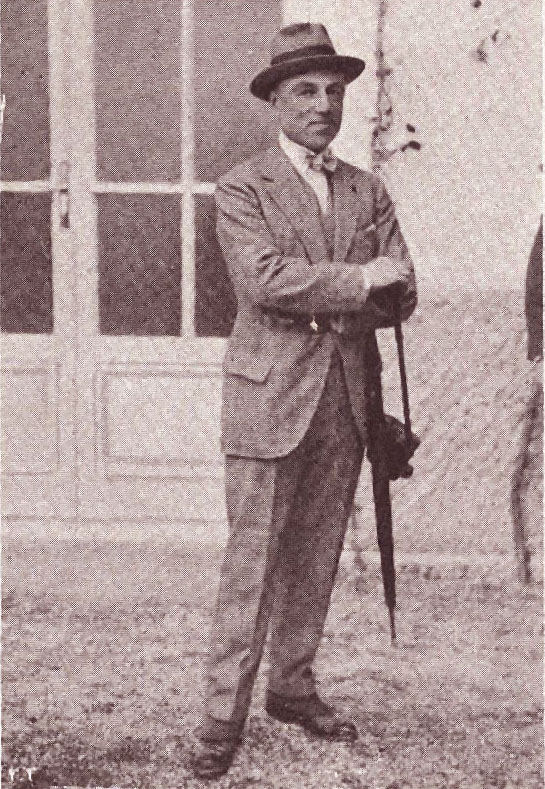 Which racing figure, past or present, do you most admire?
Which racing figure, past or present, do you most admire?
I could have picked so many from the sport but I am going to say Federico Tesio (right). He was both a breeder and trainer and successful, to say the least, at both. He bred Nearco, who had such a lasting influence on the Thoroughbred.
He did all that in Italy, where no one had achieved that level of success before or since. He figured out a way to do it. He found the best land for everything he did and the best location, moving around Italy a bit.
Some of his theories on genetics were proved to be wrong and he was pretty hard on his horses, harder than most.
I think Nearco did a mile and seven furlong gallop a day or two before the Grand Prix de Paris, which you probably wouldn’t repeat now. But it still didn’t stop him from being very successful.
What is your favourite venue, and race, anywhere in the world?
My favourite racecourse would have to be The Curragh. It’s my local track and a great place to run horses. We were five or ten minutes away and used it from time to time to work horses. I would walk across it a few days a week to look at the ground. There is no end of space and width to it. It’s well looked after, well minded. There are no little quirks, no pitfalls at the Curragh. We had so many big wins there.
I’ve been lucky to win both the Epsom Derby and the Prix de l’Arc de Triomphe. They are both such important races and it would have to be a toss-up between them. But I would have a marginal preference, by a nose, for the Arc because it’s at the end of the year and means three-year-olds and older horses come together for a final clash.
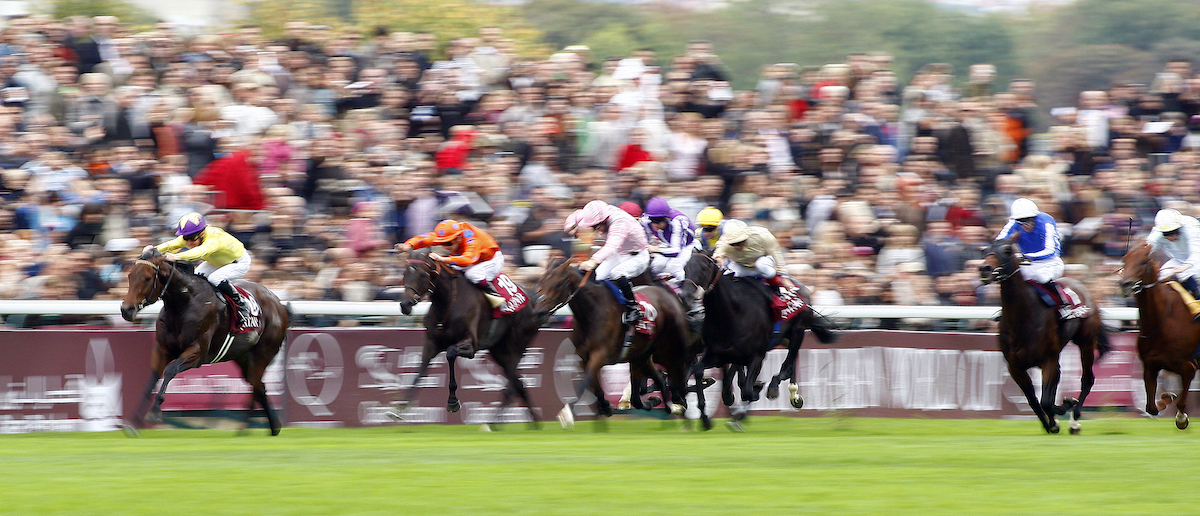 Who is your favourite racehorse and why?
Who is your favourite racehorse and why?
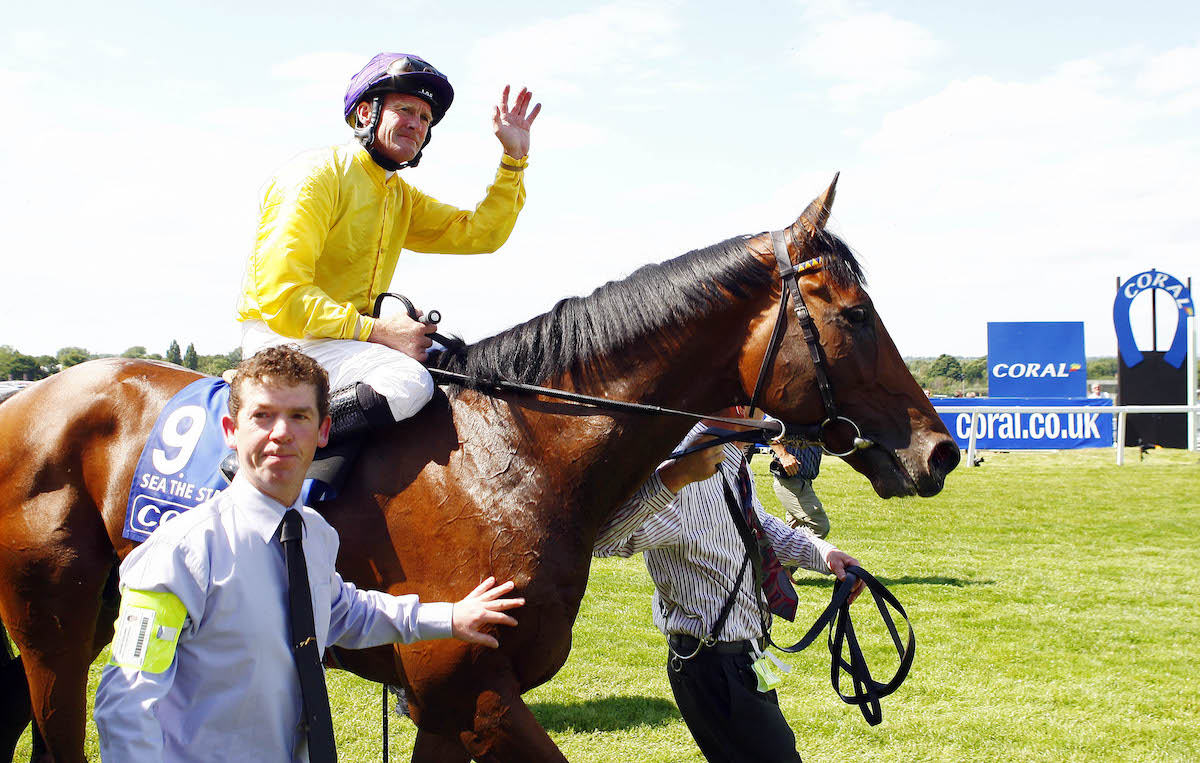 In my case, miraculously I was lucky enough to have Sea The Stars come through my gate. He was such a great horse, a privilege to train and a privilege to look at everyday, plan his work and see him progress.
In my case, miraculously I was lucky enough to have Sea The Stars come through my gate. He was such a great horse, a privilege to train and a privilege to look at everyday, plan his work and see him progress.
He was such a phenomenal athletic specimen that you would just admire him. When I would go round evening stables, I would just stay a bit longer in his box. It was a stressful time as his three-year-old year went on because you would worry that something would go wrong.
It was so exciting to see him manage to win everything he ran in and watching him race wasn’t too stressful because you knew he had everything under control.
He was a clever horse. Most trainers who have a very good horse nearly always say how intelligent they are. In his case he knew what he was doing. He didn’t know exactly where the winning post was, of course, but he knew when he had things covered.
At York in the Juddmonte International he got a bit confused going through the gap nearly three furlongs down when Johnny Murtagh [on Mastercraftsman] went up between the two pacemakers and Mick Kinane followed him through. I was wondering for a while was he going to get there.
In the Arc he was in a spot of trouble but once he got through the gap early in the straight I was pretty happy he was going to pick them up.
The stress came from the responsibility of having this horse that was the best around, among the greats. The responsibility was not to cock up anything and make sure he was at his best every day so he could have this clean record.
A great horse has to prove it by winning all the races. In a 100-year period there are not many of them. You couldn’t but have him as your favourite racehorse.
What is your fondest memory in racing?
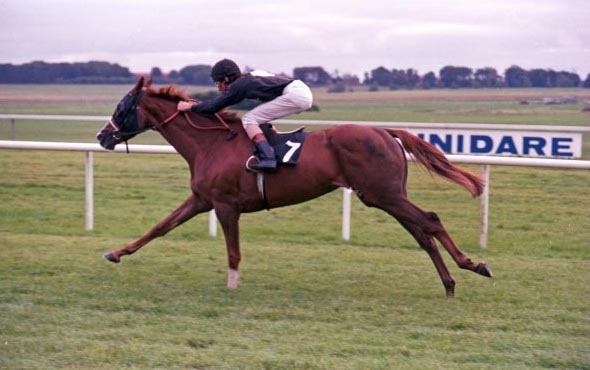 My first Classic and Group 1 win with the filly Eurobird in the 1987 Irish St Leger. Cash Asmussen rode her. It was the year my father died. She was owned by Gerald Jennings from Northern Ireland who had had horses with us for several years.
My first Classic and Group 1 win with the filly Eurobird in the 1987 Irish St Leger. Cash Asmussen rode her. It was the year my father died. She was owned by Gerald Jennings from Northern Ireland who had had horses with us for several years.
He was the owner of Sorbus, who won the Irish Oaks in 1978, which was my father’s last year training, but she was unjustly disqualified having won clearly. Today there wouldn’t even be a stewards’ inquiry. It was a big blow to my father and very disappointing for Mr Jennings. For me to win with Eurobird nine years later for Mr Jennings was a really fond memory.
If there is one thing in racing you would change, what would it be?
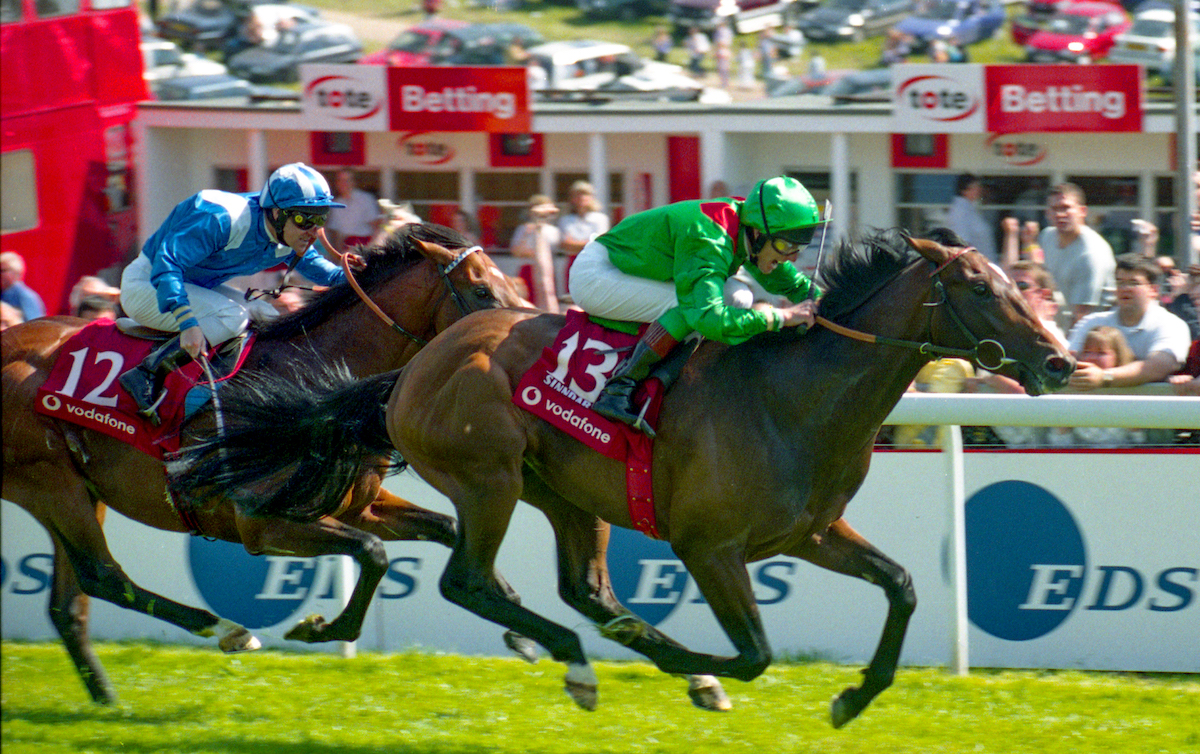 The main topic today is horse welfare and the dreaded words ‘social licence’. There is a lot happening, an awful lot that can be done, progress to be made. If I could have one wish it would be that we could get near to the end of the road and have toned down the debate about whether racing is right or not.
The main topic today is horse welfare and the dreaded words ‘social licence’. There is a lot happening, an awful lot that can be done, progress to be made. If I could have one wish it would be that we could get near to the end of the road and have toned down the debate about whether racing is right or not.
We need to show racing is well run in the interests of the horses themselves, that they are looked after to a high standard and everything is done that can be done to reduce injuries on racecourses and in training.
If we can, I’d like to get to a stage where racing has got its house so well in order that negative occurrences are almost obliterated. I think it’s possible if everyone gets serious about it – but it needs to happen quickly.
John Oxx was speaking to Jon Lees
• View the entire What They're Thinking series
Rachel Venniker: I would love a bit more public energy for racing
Rachel King: If things had been different in Britain I may have stayed
Christina Blacker: I wish I could go back and relive Zenyatta again and bottle up that experience
Nick Luck: The fan has become the least important part of the puzzle – which is a crying shame
Brent Thomson: If animal rights groups had their way, there wouldn’t be any racing
View the latest TRC Global Rankings for horses / jockeys / trainers / sires


